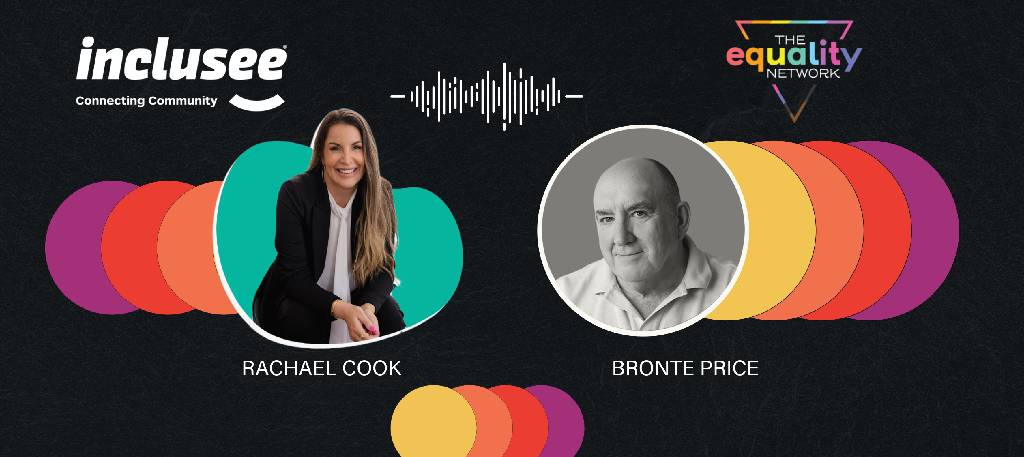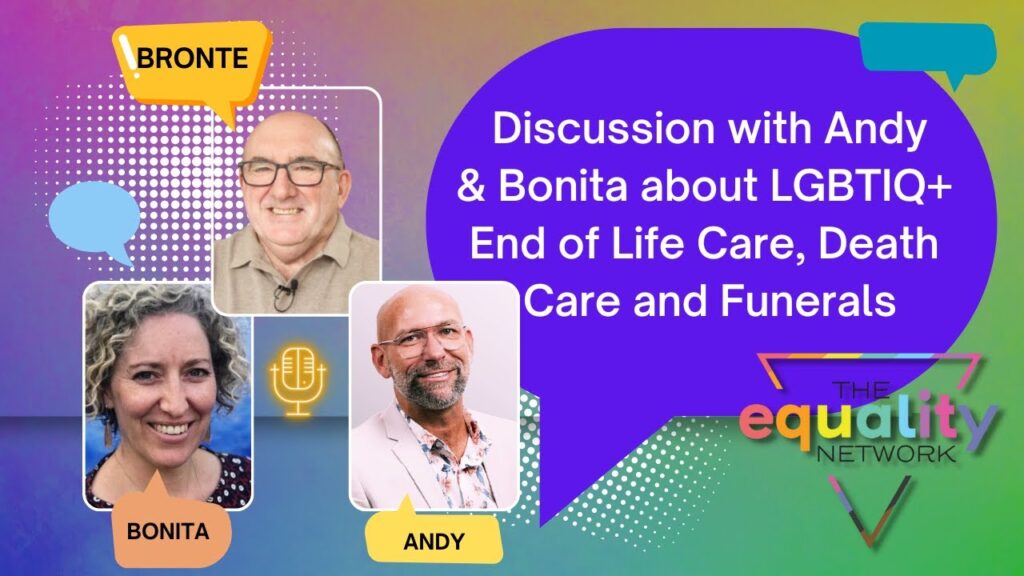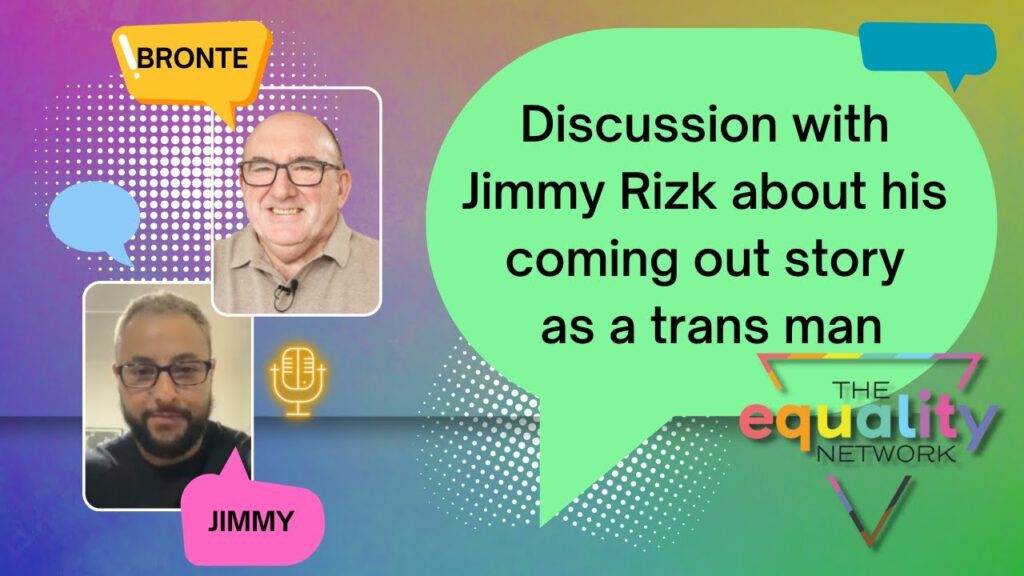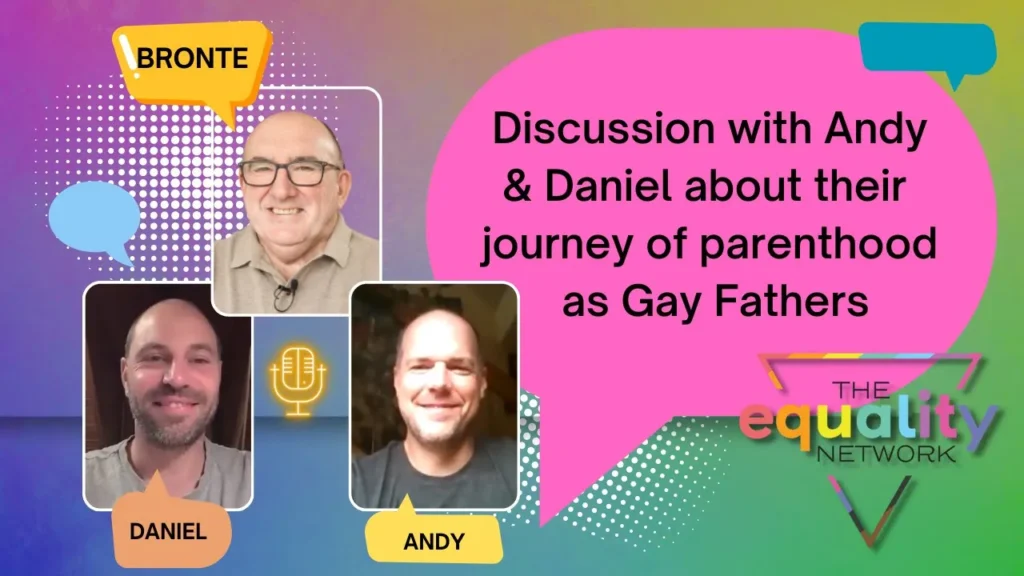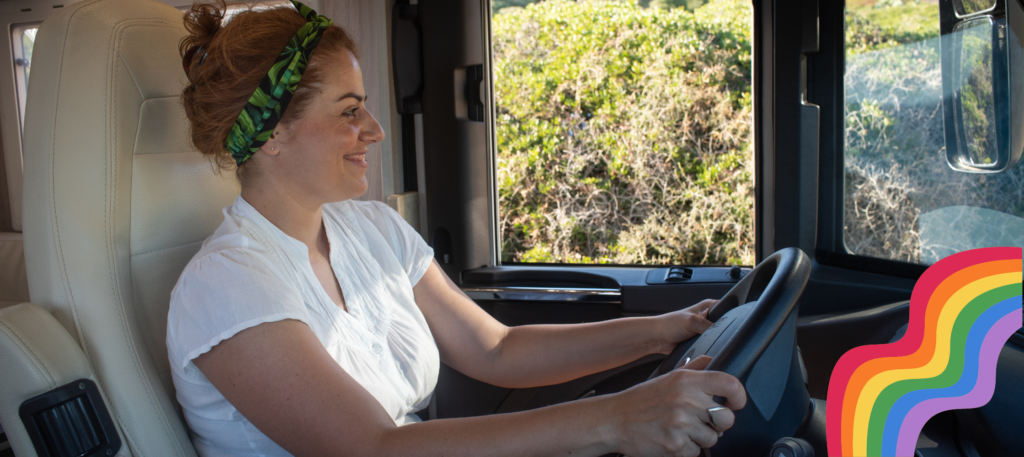Discussion with Fran Webber about her own Work & Life experiences as a Lesbian
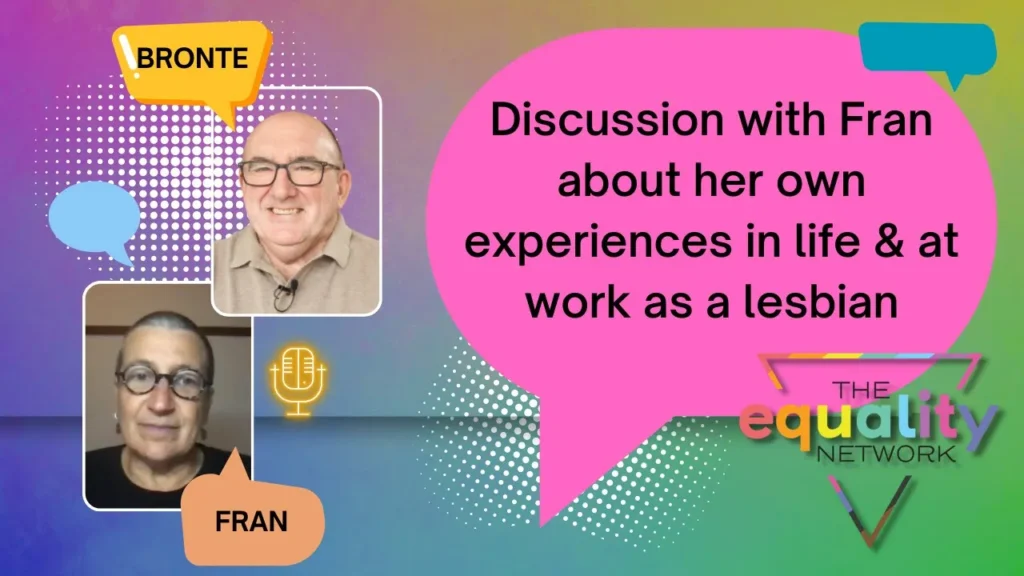
Lesbians have always been part of the paid workforce. But it’s been a long struggle for equal rights. The sneers, jokes, bullying and discrimination have always been there. But slowly, progress is being made. In this webinar, we explore some of the issues and challenges still faced by lesbians at work and in life through Fran Webber’s own experiences.
The interview meanders across the following discussion areas:
- Interviewing Fran Webber
- Language first: are you comfortable being called a lesbian or do you prefer to be called a gay woman?
- Tell us a little about yourself and what being a lesbian means to you.
- How was it for you when you came out? Can you briefly share your coming out story?
- What are the safe places for lesbians to gather? Are there lesbian clubs?
- What are some of the stereotypes associated with being a lesbian?
- Have you ever encountered those in a workplace? If so, what did you do about it?
Transcript of interview with Fran Webber hosted by Bronte Price
Bronte: Well, hi! It’s Bronte Price here from the Equality Network, and I’m a cisgender gay guy. Welcome to yet another safe space chat where, bit by bit, we talk to various people from the LGBTIQA+ community and discuss all sorts of issues.
Fran: Back in the workplace… Well, I think the big win is the acceptance of us.
Bronte: Yeah. Fran, would you mind sharing a little about yourself and what being a lesbian means to you?
Fran: Of course! I’m 57 years old. I work as a funeral director, although not quite full-time. I’m also studying for my diploma in Australian Sign Language (Auslan). As for labels, I identify as a cisgender lesbian, but feel free to call me lesbian or gay—whatever feels comfortable for you. Intent matters more than the specific term. Even if someone referred to me as a “dyke,” I’d be fine with it as long as the intention is respectful.
Bronte: Thank you for sharing that. And do you want to give a shout-out to your company? Who do you work for?
Fran: Certainly! I work for Tobin Brothers Funerals, a Melbourne-based company. I’ve been with them since 1995, and I’m very happy there. They’re fantastic—professional, great with clients, and supportive of their employees. Working as a funeral director has been incredibly satisfying and fulfilling. Plus, they’ve always embraced my sexuality.
Bronte: That’s wonderful to hear. So, being out at work has never been an issue?
Fran: Not at all. We even bring our partners to the work Christmas party. While there may be a few individuals who aren’t great about it, from top management down, it’s always been absolutely fine—underpinned by respect, which is fantastic.
Fran: Oh, definitely. It’s just a part of who I am, and it’s usually not relevant unless someone specifically asks for a lesbian funeral director. In those cases, we happily refer them to me. Also, if we’re aware that the deceased person’s partner is of the same gender, I or one of the other gay staff members can attend to that family.
Fran: Yes, for quite some time now, I’ve been the only lesbian on the team. But we do have several gay colleagues, which is great. Networking events related to work have always been fine. There was this fundraising event years ago—it was like a “Cup of Eve” thing—where we all chipped in. From top management down, it’s been smooth sailing, even though our company is often seen as the conservative Catholic funeral company. Surprisingly, it’s still been okay, which is encouraging.
Bronte: Thanks for sharing that. Now, tell us about your coming-out experience. It must have been quite a journey.
Fran: Indeed, it was. I grew up in a small country town in South Australia. My parents were devout Christians—Protestants, not Catholics. Their decisions and actions were always guided by what they believed was the Lord’s will. I attended church, Bible studies, and even played netball for the church team. When we moved to Melbourne, it was a whole new world, but my upbringing stayed with me. Everyone knew everyone in that small town, and they knew my family’s background. My dad was a lecturer at the local theological college, and my mom was involved in religious instruction. Although it was a process, eventually, I found my way.
Bronte: Growing up until age 15, it sounds like you had quite an interesting experience. The ’70s were a different era, especially when it came to LGBTQ+ representation. Positive role models were scarce, and the media often portrayed stereotypes. How did that impact your perception?
Fran: Absolutely. Back then, there were no positive role models for gays and lesbians. The spokespeople tended to fit certain stereotypes—either the “dyke” image or the campy, obviously gay guys. It was a combination of growing up in a small Australian town during the ’70s and having a strong Christian upbringing. Homosexuality was considered a sin, and I associated being a lesbian with being Butch, ugly, hairy, and man-hating. It’s funny how times have changed, though. Nowadays, my “gaydar” is way off—I can’t tell just by looking at someone!
Bronte: Interesting! So, who was the only lesbian you knew back then?
Fran: Ah, that would be our PE teacher. She didn’t fit all the stereotypes—she wasn’t ugly, but she definitely wasn’t feminine. She was a strong feminist, not a man-hater. Looking back, I wish I’d known her better. But it wasn’t until later, after leaving that town and moving to Melbourne, that I started questioning things. I was 15 when we made that move.
Bronte: It’s fascinating how life unfolds unexpectedly. So, you found yourself in a relationship with a woman, and it caught both of you off guard. How did that play out?
Fran: Yes, it was quite a surprise. We were best friends, and suddenly something shifted between us. We continued our secret relationship for over two years—no one knew, not even our friends or family. Looking back, it’s interesting how we both assumed we’d eventually marry men and have kids. The idea of a long-term, committed relationship with another woman wasn’t even on our radar. When that relationship ended because she left me for a man (and they’re happily married now), I finally came out to my mom as bisexual. Until then, I hadn’t fully acknowledged my own identity. We never went to gay clubs or saw gay movies—it was just us navigating our initial situation.
Bronte: And then you broadened your horizons?
Fran: Exactly. I started reflecting on past interactions and realized I had connected with other gay women. Finally, I went to a gay club, and it felt like my blinkers came off—the world expanded infinitely. Later, I quit my job and moved to London, where I immersed myself in the gay and lesbian scene. There was this fantastic weekly Discussion Group at the London Lesbian and Gay Center. It completely changed my perspective and opened up new possibilities. Meeting other lesbians in long-term relationships made it feel normal.
Fran: For the first time, I saw being a lesbian as a possibility. I realized that if I had to label myself, it was more accurate to say I’m a lesbian, not bisexual. So, I spoke to my parents about it. That conversation was part of acknowledging it to myself. Being in a different country, I made new friends, and my social circle revolved around that group. The first time I went out on a Wednesday night, I met people and had plans for the weekend. Unlike Melbourne, which had only one lesbian-only club, there were numerous mixed gay and lesbian nights and events in this scene. I even knew an Indian DJ who ran a club called Asia, where women could embrace both their lesbian identity and cultural background. The dancing there was different from what I was used to, but it was an amazing experience.
Bronte: When you returned to Melbourne, did things change?
Fran: Yes, I had a different job and decided to be more open about my sexuality. Initially, I kept work separate from my private life. But eventually, coming out became as simple as saying, “I’m married,” or “I have a partner named [name].” It wasn’t a big deal, although I constantly had to challenge assumptions. Interestingly, even though it wasn’t illegal for women (unlike for men), there was still a sense of foreignness or something being “wrong” associated with being gay. But attitudes have evolved. Walking into my first lesbian club was euphoric—I felt like everyone there was just like me.
Bronte: It’s interesting how our first experiences in lesbian clubs can be both euphoric and overwhelming. I remember seeing someone I knew and nearly panicking. But eventually, the excitement took over.
Fran: Absolutely. Seeing that representation in front of me—beyond my own mirror—was amazing. The range of expressions and identities was broader than the stereotypical portrayals I grew up with. And yes, there was that extra layer of illegality back then.
Bronte: So, are there still lesbian clubs or safe spaces in Melbourne?
Fran: Not as much as before. Club 397, formerly known as The Boulevard on Swanson Street, was where I first went. Over the years, there were more options, but I’ve been in a relationship for 16 years now, and we don’t frequent gay clubs or lesbian spaces. Anecdotally, I believe there are still options, but my focus has shifted to shared ethics and values rather than just sexuality. It’s about finding our people, regardless of labels.
Bronte: That makes sense. As we get older, it’s less about where we fit in and more about who we connect with.
Fran: Exactly. Life keeps us busy—house stuff, fostering kids, walking the dog. The club scene isn’t our priority anymore.
Bronte: You know, that old thing they used to call the “gay
agenda” is pretty much everyone’s agenda, right? It’s about lifestyle and acceptance. But there are still battles to be fought, and we’ve come a long way since marriage equality became law in Australia almost five years ago.
Fran: Absolutely. It’s heartening to see broader acceptance,
but there’s still a long way to go. Particularly for transgender and
gender-diverse individuals, there are significant challenges. Speaking of marriage equality, it was an interesting time when the government decided to put it to a public vote. We thought we were tough and secure, but it impacted
us unexpectedly. Thankfully, we got the “yes” vote, but it was a divisive and unnecessary period.
Bronte: It’s unfortunate that even in progressive times,
there’s still resistance. But conversations and understanding can make a difference.
Fran: Exactly. I hope we don’t have to go through that
again. It’s minor compared to what others face, but it gave people a license to be hateful. We need empathy and awareness to create a more accepting world.
Bronte: It’s unfortunate that some people can be hurtful
without fully understanding the impact of their words. But let’s shift gears—your employer, Tobin Brothers, seems pretty inclusive. You mentioned a variety of LGBTIQA+ colleagues, including gay guys and yourself. It’s great that
they bring their partners to events without hesitation.
Fran: Yes, Tobin Brothers has been quite open. A few years
ago, I reviewed our policy document and suggested changes related to maternity leave, adopting more inclusive language like “primary parent” and “secondary parent.” I also pushed for gender equality, like allowing guys to wear
earrings. The company was receptive and made the necessary adjustments.
Bronte: That’s commendable. And recently, you noticed
something else?
Fran: Yes, we have a template for funeral services. It’s a flexible document where we input details like the deceased’s name and location. The welcome message used to say “ladies and gentlemen,” but I noticed that it’s now more inclusive. Small changes matter.
Fran: I noticed that the welcome message printed out differently—now it says “we welcome you today.” I spoke to our HR manager, who happens to be a bit older than me. She explained that she made the change. Someone had mentioned it, or perhaps she herself realized it, but she simply removed the gendered language. No need to run it by anyone; it was a straightforward adjustment. While some people might still say “ladies and gentlemen” out of habit, this small but tangible change reflects our ongoing commitment to inclusivity.
Bronte: It’s heartening to see those steps toward inclusivity. Your workplace sounds quite accepting. Have you noticed other positive changes?
Fran: Absolutely. Tobin Brothers, although historically seen as a Catholic funeral director, serves a diverse clientele. We handle Catholic, Hindu, Jewish, and civil services. While there’s still room for improvement, the company is open to diversity. As for non-binary inclusion, it might take time, but even small steps matter. Speaking of changes, I’ve experimented with different hairstyles—like cutting my ponytail short. And when it comes to charity events, like the “shave for a cure,” the workplace has been supportive.
Bronte: It’s fascinating how even small changes, like removing gendered language, can contribute to a more inclusive workplace. Your experience with the “shave for a cure” event highlights that. And it’s wonderful that your employer was supportive and didn’t require explanations for your haircuts.
Fran: Absolutely. Those small steps matter. As for my coming-out process, it was a mix of relief and complexity. Over time, I moved from acknowledging my identity to feeling completely comfortable with it. Leaving behind my Christian upbringing played a role, and while there’s less guilt now, there’s still a touch of sadness regarding my parents’ acceptance. But not having to explain my relationship status during family events is a relief.
Fran: It was 2007, Mum and Dad’s 50th wedding anniversary. Mum, being Germanic, isn’t big on birthdays, but this occasion was significant. We all attended church, followed by a morning tea. My partner and I were expected to be there, and it’s become normalized. Dad always hoped we’d all be Christians, even though my oldest brother lived with his now-wife before marriage. When my 11-year relationship ended over 20 years ago, Mum and Dad were genuinely upset for both of us. They saw it as a marriage of hearts breaking down. While they pray for us to find the Lord, they still struggle with accepting my identity. They surprise us sometimes, but we agree to disagree on fundamental matters. It’s a delicate balance, but love remains at the core.
Fran: It’s never something I hide. For events like the 50th anniversary, I bring my partner, and they can’t ignore it anymore. If I were to give advice to someone questioning their sexuality or gender identity, I’d say: Be true to yourself. Even if you need to separate family and personal life, find chosen family—people who accept you. Prioritize being authentic, especially in your own home. Living an integrated life brings joy. Losing someone due to your truth is their loss. And remember, you’ll make new friends and family who accept you for who you are.
Fran: It was fine. You know, the very country woman who’d go to the footy games and yell out—you have to flop, you know, lop-eared at the opposition—was very quickly fine. All the rest of the family had been very accepting. She now has kids with her ex-partner and two others more recently in same-sex relationships. They’re just part of the family. So yes, sometimes you’ll know that this will be the end of a relationship with your birth family or parts thereof, but sometimes you’ll think it might be. Be true to yourself. Even if you need to separate family and personal life, find chosen family—people who accept you. Prioritize being authentic, especially in your own home. Living an integrated life brings joy. Losing someone due to your truth is their loss. And remember, you’ll make new friends and family who accept you for who you are.
Fran: Thank you. I’ve enjoyed our chat, friend. Thanks so much. I’ve enjoyed it, and honestly, Brandy, if anybody watches this and actually gets through to the end, good on you. The code word for a prize is “Fredo frog.” I’d love to think that some people might actually even in segments skip through all of this and live your life, be you, and embrace how things have changed. Thanks, Bronte, for everything that you’re doing for our community.
Bronte: Thank you!


